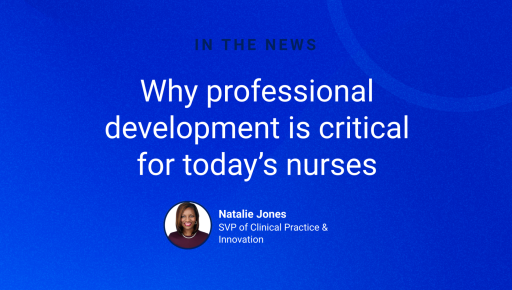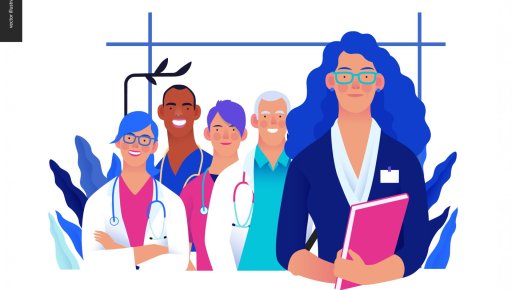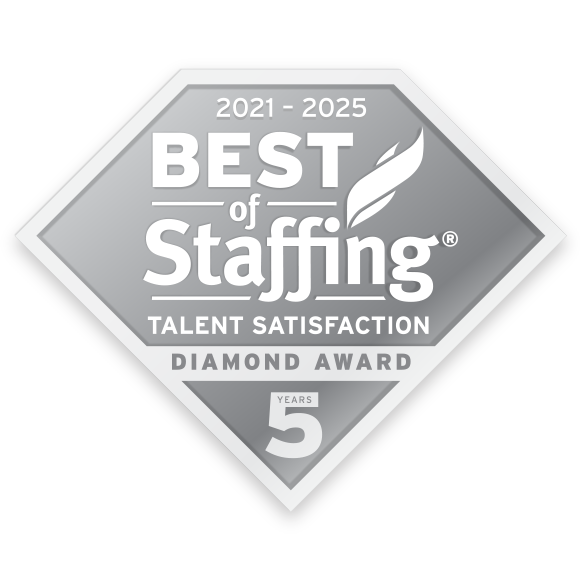The increasing need for healthcare professionals within local communities has become a prominent trend in recent years. This surge in demand can be attributed to various factors, such as the aging population, advancements in medical technology, and the growing emphasis on preventive care.
As a result of job growth, there are numerous opportunities available for individuals seeking employment in the healthcare sector. As communities grapple with health challenges and the need for accessible medical services intensifies, the healthcare sector is undergoing a transformation that presents both challenges and opportunities.
Read on to delve into the trends shaping the rising demand for local healthcare jobs and the myriad of opportunities this surge presents for job seekers, professionals, and communities at large.
The Landscape of Local Healthcare Jobs
The rising demand for local healthcare jobs is driven by various factors, including the aging population, advancements in medical technology, and the growing emphasis on preventive care. These trends have created numerous opportunities for individuals seeking employment in the healthcare sector. Whether it is providing specialized care to the elderly, utilizing advanced medical equipment and technology, or promoting preventive care, the demand for healthcare professionals in local communities is expected to continue growing in the foreseeable future.
Population Growth and Aging
The demographics of many regions are shifting, with a significant increase in the aging population. According to Health Affairs, by 2030 more people in the United States will be older than age sixty-five than younger than age five. With the baby boomer generation reaching retirement age, there is a greater need for healthcare services to cater to their specific needs. As individuals age, the demand for healthcare services rises, creating a need for more healthcare professionals to cater to the specific needs of elderly patients.
The aging population represents a demographic shift that significantly intensifies the demand for healthcare professionals across various disciplines. As individuals age, they often experience a higher prevalence of chronic illnesses and complex health conditions, necessitating a greater need for medical attention and ongoing care. Conditions such as cardiovascular disease, diabetes, and neurodegenerative disorders become more prevalent with age, requiring specialized expertise and continuous monitoring.
Additionally, the elderly often grapple with multiple health issues simultaneously, necessitating a coordinated and interdisciplinary approach to healthcare. This intricate web of medical complexities places an increased burden on healthcare professionals, ranging from physicians and nurses to physical therapists and geriatric specialists.
Furthermore, the aging demographic contributes to a surge in healthcare services overall, as routine medical check-ups prescribing medications, preventive care, and therapeutic interventions become more frequent requirements.
The demand on healthcare providers for long-term care services, including assisted living facilities and nursing homes, also escalates with an aging population, amplifying the need for skilled caregivers and healthcare personnel capable of managing the unique challenges associated with elderly patients. This includes not only medical care but also long-term care facilities and home healthcare services. As a result, there is a growing demand for healthcare professionals such as doctors, nurses, and caregivers who can provide specialized care to the elderly population.
Pandemic Impacts
The global Covid-19 pandemic has underscored the critical importance of a robust healthcare infrastructure. The strain on healthcare systems worldwide has accentuated the need for more personnel in various healthcare roles, from frontline workers to administrative staff.
The demand for healthcare workers surged dramatically as hospitals and medical facilities grappled with the influx of Covid-19 cases. Frontline workers in medical facilities, including doctors, nurses, and support staff, faced unprecedented workloads, extended hours, and heightened stress levels. The need for specialized skills in critical care, infectious diseases, and respiratory therapy became more pronounced, leading to a reshuffling of priorities in workforce management.
The pandemic also exposed and exacerbated existing vulnerabilities in the healthcare job market. Non-urgent medical procedures were postponed, causing a decline in revenue for many healthcare institutions. This financial strain resulted in job cuts, furloughs, and hiring freezes across various sectors of the healthcare industry. Allied healthcare professionals, such as physical therapists, dental hygienists, and medical office staff, found themselves grappling with reduced job opportunities and economic uncertainty.
Moreover, the pandemic accelerated the adoption of telehealth services, transforming the way healthcare is delivered. This shift led to an increased demand for technology-savvy professionals who could navigate virtual platforms and manage digital health records.
Overall, the pandemic has reshaped the landscape of healthcare jobs, highlighting the need for adaptability, resilience, and a diverse skill set among healthcare professionals in the face of unprecedented challenges.

Trends Shaping the Demand for Local Healthcare Jobs for 2024
The demand for local healthcare jobs is influenced by several key trends. Firstly, as noted above, an aging population contributes to a growing need for healthcare services, driving demand for various professionals such as nurses, physicians, and allied health workers.
In recent years, there has also been a significant rise in mental health awareness, marked by a growing recognition of the importance of mental well-being in overall health. The rise of awareness has not only encouraged open dialogues but also propelled initiatives to provide better support systems, resources, and destigmatize seeking help for mental health challenges.
As the focus on preventive care and wellness grows, there is a rising demand for professionals in public health and community outreach. Moreover, advancements in medical technology create new roles in fields like telemedicine and health informatics.
These trends collectively shape the landscape of local healthcare job opportunities, emphasizing the need for a diverse and skilled workforce to meet evolving healthcare challenges.
Mental Health Awareness and Services
Increasing awareness and de-stigmatization of mental health issues have led to a surge in demand for mental health professionals. Local healthcare jobs in counseling, therapy, and psychiatric care are on the rise, addressing a crucial aspect of holistic healthcare.
The increasing recognition of mental health as a critical component of overall well-being has led to a surge in demand for mental health services. This demand places considerable strain on healthcare professionals, who must navigate complex and multifaceted mental health issues to treat patients.
The need for specialized training and resources to address mental health issues has become paramount, prompting a shift in the healthcare workforce's skill sets and priorities. As mental health gains prominence, it is imperative for healthcare systems to invest in the well-being of their workforce, ensuring they are equipped to meet the growing demand and provide high-quality care for individuals facing mental health challenges.
Preventative and Wellness Care
There is a paradigm shift towards preventative care and wellness-oriented healthcare. As healthcare systems shift their focus towards preventing diseases and promoting overall wellness, there is a need for professionals who can educate and guide individuals in making healthier lifestyle choices. This includes nutritionists, health coaches, and wellness consultants who can assist patients by working closely with them to develop personalized plans for disease prevention and management.
This shift creates opportunities for professionals in fields like nutrition, fitness, and community health promotion as healthcare providers focus on becoming patient advocates, educating patients and keeping communities healthy, rather than just treating illness. The demand for these professionals is expected to continue growing as more individuals prioritize their health and seek guidance in maintaining a healthy lifestyle.
Telehealth and Remote Services
The rise of telehealth services has revolutionized healthcare delivery, and this trend is expected to continue. With an increasing array of services becoming available remotely, a corresponding demand has emerged for skilled professionals well-versed in the intricacies of telemedicine technologies.
One of the prominent areas witnessing the impact of this technological revolution is telehealth nursing. As traditional healthcare boundaries blur, nurses equipped with the expertise to navigate virtual platforms and communicate effectively in a digital environment are becoming invaluable.
Telehealth nurses play a crucial role in providing remote patient care, offering guidance, and monitoring health conditions from a distance. This not only enhances the accessibility of healthcare but also streamlines the delivery of services, making it more efficient and patient-centric.
Moreover, the surge in virtual consultations has become a hallmark of the telehealth era. Healthcare professionals, ranging from general practitioners to specialized physicians, can now connect with patients through video calls, enabling comprehensive consultations without the need for physical presence. This not only benefits patients who may be geographically distant but also facilitates quicker access to medical advice, contributing to timely interventions and improved health outcomes.
Remote monitoring is another facet of telehealth that has gained prominence. With the aid of wearable devices and connected health technologies, healthcare providers can remotely track patients' vital signs, medication adherence, and other pertinent health metrics. This proactive approach to healthcare enables early detection of potential issues, facilitates preventive care, and reduces the frequency of hospital visits.
As the telehealth landscape continues to evolve, job opportunities in these specialized areas are on the rise. Professionals with a proficiency in telemedicine technologies, coupled with a deep understanding of healthcare protocols, medical and surgical care are increasingly sought after by healthcare institutions, technology companies, and telehealth startups. This trend not only creates new avenues for employment but also necessitates ongoing training and education to keep healthcare professionals abreast of the latest developments in telehealth.
Technological Advancements
Advancements in medical technology have also played a crucial role in the increasing demand for local healthcare jobs. With the development of new treatments, procedures, and medical devices, there is a need for skilled professionals who can operate and maintain these technologies to treat patients. This includes technicians, radiologists, and other specialized healthcare professionals who can utilize these advancements to provide accurate diagnoses and effective treatments.
The continuous evolution of medical technology has become a driving force behind the surge in demand for local healthcare jobs. This phenomenon is intricately linked to the relentless pursuit of innovation in the field of healthcare. As breakthroughs in medical treatments, cutting-edge surgical procedures and state-of-the-art medical devices continue to redefine the landscape of patient care, the demand for skilled professionals has never been more pronounced.
Additionally, the integration of technology in healthcare, such as electronic health records (EHRs), artificial intelligence (AI), and robotics, is transforming the industry. Professionals skilled in health informatics, data analysis, and tech support are becoming increasingly vital.
EHRs have emerged as a cornerstone in this transformation, streamlining patient data management, enhancing communication among providers, and ultimately improving the overall quality of care. AI is another pivotal aspect, with machine learning algorithms aiding in diagnostics, treatment planning, and even drug discovery. These technologies not only expedite processes but also contribute to more personalized and efficient healthcare delivery.
Moreover, the integration of robotics into care practices is revolutionizing patient care and surgery. Robotics-assisted surgeries, for instance, offer greater precision, shorter recovery times, and reduced invasiveness. This not only benefits patients but also demands a workforce equipped with technical skills to operate and maintain these sophisticated systems.
As technology continues to advance, professionals proficient in health informatics, data analysis, and tech support are becoming indispensable. Health informaticians play a crucial role in managing and analyzing health information, ensuring its accuracy and security. Data analysts are essential for extracting meaningful insights from the vast amounts of healthcare data generated, contributing to evidence-based decision-making and improved patient outcomes.
In essence, the integration of technology into healthcare not only enhances efficiency and precision but also creates a demand for a diverse skill set. The evolution of the industry is not solely contingent on medical expertise but increasingly on the ability to leverage and support the technological tools that are now integral to modern practices. As a result, a workforce adept in the intersection of healthcare and technology is crucial for navigating the complexities of this rapidly evolving landscape and ensuring the optimal delivery of patient care.

Opportunities in Local Healthcare Jobs
The opportunities in local healthcare jobs are multifaceted, reflecting the dynamic nature of the healthcare industry. The rising demand for professionals in nursing, allied health professions, physician assistants, nurse practitioners, IT and informatics, community health workers, and entrepreneurship in healthcare underscores the need for a diverse and skilled workforce.
As local healthcare systems continue to evolve, these opportunities not only address current gaps but also pave the way for a more resilient, accessible, and innovative future.
Nursing and Allied Health Professions
One prominent trend is the escalating demand for professionals in nursing and allied health professions. As the aging population grows, there is an increasing need for skilled healthcare providers who can coordinate patient care and deliver comprehensive and compassionate care. This surge in demand extends beyond traditional roles, with a call for specialized skills in areas such as geriatrics, palliative care, and mental health.
The demand for nurses, medical assistants, radiologic technologists, occupational therapists,, and other allied health professionals remains robust. As the backbone of healthcare delivery, these roles offer stable employment opportunities, with specialized fields like geriatric nursing experiencing particularly high demand.
Physician Assistants and Nurse Practitioners
The roles of physician assistant, nurse practitioner, and advanced practice registered nurse are gaining prominence and filling critical gaps in healthcare delivery. These professionals play a crucial role in providing primary care services, and the demand for their expertise is on the rise. Physician assistants, nurse practitioners, and advanced practice registered nurses with their advanced training and ability to provide a range of medical services, are becoming integral members of primary and specialty healthcare teams. Their versatility allows for more accessible and cost-effective healthcare solutions, addressing shortages of primary care providers in many local communities.
Healthcare IT and Informatics
As healthcare systems become more digitized, the need for professionals in healthcare IT and informatics is escalating. Opportunities abound for individuals skilled in managing electronic health records, implementing healthcare analytics, and ensuring the security of digital health information.
The digitalization of medical records with a patient's medical history, implementation of telehealth platforms, and the utilization of data analytics for patient care have become pivotal aspects of modern healthcare. Consequently, skilled individuals adept in managing and optimizing these technological advancements are essential to ensure the efficiency, security, and quality of healthcare services.
Community Health Workers
The emphasis on community-based healthcare has elevated the importance of community health workers. These individuals work directly with communities, providing education, preventive care, and treatment plans and acting as liaisons between healthcare providers and the people they serve.
The role of community health workers is gaining recognition as vital connectors between healthcare providers and local communities. These, equipped with cultural competence and community-specific knowledge, play a pivotal role in promoting health education, preventive care, and facilitating access to healthcare resources. Their impact is particularly pronounced in underserved areas where establishing trust and understanding local needs are paramount for effective healthcare delivery.
Entrepreneurship in Healthcare
Entrepreneurship in Healthcare is another burgeoning avenue, fostering innovation and addressing gaps in service provision. The evolving healthcare landscape opens doors for entrepreneurial ventures. Innovations in healthcare technology, wellness programs, and specialized services create opportunities for individuals with an entrepreneurial spirit to contribute to the industry.
The evolving healthcare landscape offers opportunities for entrepreneurs to create solutions that improve patient outcomes, enhance access to care, and streamline healthcare processes. From telemedicine startups to wellness-focused ventures, entrepreneurial initiatives contribute to the diversification and optimization of healthcare services at the local level.
Challenges and Considerations
Education and Training
The local healthcare workforce faces multifaceted challenges, beginning with education and training. Continuous advancements in medical science require professionals to engage in lifelong learning, necessitating robust and adaptable educational frameworks. Meeting the rising demand for healthcare jobs requires a concerted effort in education and training. Institutions must adapt to provide the necessary skills and knowledge, and prospective healthcare professionals must be prepared to engage in continuous learning.
Workforce Diversity
Ensuring diversity within the healthcare workforce is crucial to address the varied needs of a diverse patient population. Striving for inclusivity in training programs and promoting diversity in recruitment practices can enhance cultural competency and improve overall patient care.
Achieving diversity in the healthcare workforce is crucial for providing culturally competent care. Initiatives to encourage individuals from diverse backgrounds to pursue careers in healthcare are essential for building a workforce that reflects the communities it serves.
Burnout and Well-being
According to the American Hospital Association, about 6 in 10 said pandemic-related stress had harmed their mental health. The intensification of healthcare demands, particularly in the wake of the pandemic, has raised concerns about burnout among healthcare professionals. Addressing mental health and well-being within the workforce is paramount to sustaining a resilient and effective healthcare system.
It is imperative for healthcare organizations to implement support systems, such as mental health resources and workplace wellness programs, to mitigate burnout and prioritize the well-being of their staff. Balancing these considerations is essential for building a resilient and effective healthcare workforce capable of meeting the evolving needs of communities.
Navigating the Future of Local Healthcare Jobs with Prolink
The rising demand for local healthcare jobs reflects the evolving needs of communities and the healthcare industry's response to these challenges. From technological advancements to a renewed focus on preventive care, the trends shaping the landscape present a myriad of opportunities for those entering or advancing their careers in the field.
As the industry navigates this transformative period, it is essential for stakeholders, including educational institutions, healthcare organizations, and policymakers, to collaborate in fostering an agile and resilient healthcare workforce that can meet the diverse and evolving needs of communities. The future of local healthcare jobs is dynamic, promising, and ripe with opportunities for those ready to contribute to the well-being of their communities.
Are you looking for career growth? Considering the trends and opportunities in the local healthcare job growth, you might find the best healthcare job for you right in your community. Click below to start your healthcare job search today with Prolink’s selection of top opportunities.









